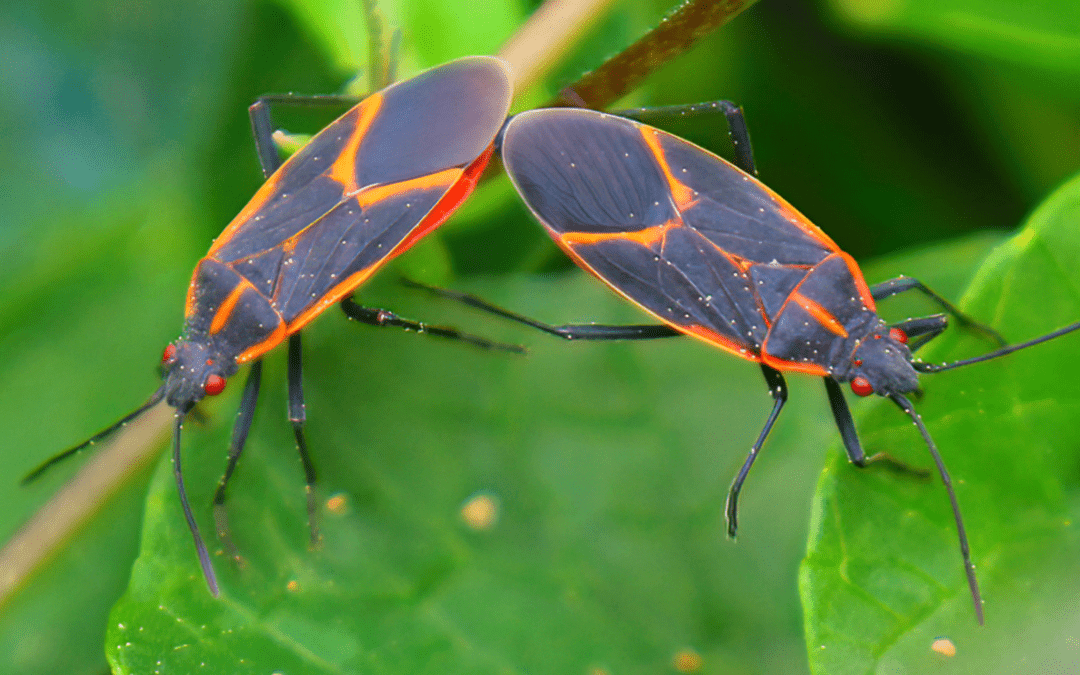READY TO GET STARTED?
REQUEST A FREE ESTIMATE
Fill out the form below or call (888) 466-7849 for a free, no-obligation estimate.

During the impending cooler months, some pests will begin seeking warmth and shelter for survival. These pests, known as overwintering pests, can survive cold temperatures due to these activities. There are three common overwintering pests: stink bugs, ladybugs, and boxelder bugs. They don’t cause any harm to you or your home, but they can become a nuisance once they get inside. Let’s break them down and discover the best ways to keep them away from your home.
These armor-shaped insects are an invasive species known to release an odor when disturbed or crushed. They pose no threat to humans or the structure of your home but can become a nuisance when an infestation occurs. They feed on a variety of plants, including fruits like apples, peaches, and figs. They prefer moist, mild climates and can be found in bathrooms and kitchens.
These harmless, overwintering pests are found worldwide and have over 5,000 known species. Ladybugs have an oval, dome-shaped body with a hard-shell wing that covers their inner wings. They are deemed beneficial and consume plant-eating insects, such as aphids, mealybugs, mites, and scale insects. During the colder months, they search for warmth and shelter. They can take over your home in a matter of days and can become a major nuisance when large populations congregate.
These pests are named for feeding off maple and seed-bearing boxelder trees in the warmer months. Boxelder bugs are sneaky pests that can easily make your home theirs. These pests are oval-shaped and elongated, with a reddish black body and orange markings on their back. They are considered more assertive than other overwintering species, puncturing skin when they feel threatened. The result is similar to that of a mosquito bite, so it shouldn’t be something to worry about.
If you suspect you have an overwintering pest infestation, contact a professional, local pest control company to provide you with a thorough evaluation and treatment plan.